
You’re Drinking Water Every Day but This One Mistake Is Costing You
We all know how essential water is to our health. It keeps us hydrated, regulates our body temperature, flushes out toxins, and even improves brain function. Drinking enough water every day is one of the simplest and most powerful things you can do to support your overall well-being. But here’s the catch: even if you’re drinking plenty of water, one common mistake could be preventing you from getting the full benefits—and it might even be doing more harm than good.
So, what is this one mistake that so many people make?
Drinking water at the wrong time.
It sounds trivial, but the timing of your water intake can significantly impact how your body absorbs and uses it. Many people drink large amounts of water during or immediately after meals. While staying hydrated is important, doing so at the wrong time can dilute your stomach acid, interfere with digestion, and lead to bloating or poor nutrient absorption.
Your stomach needs a certain level of acidity to break down food properly. When you drink too much water during a meal, you may unintentionally reduce this acidity, making it harder for your body to digest proteins and absorb key nutrients like iron, calcium, and magnesium. Over time, this can lead to digestive discomfort, fatigue, and even nutritional deficiencies.
The better approach? Drink water 30 minutes before meals and at least an hour after eating. This gives your body the hydration it needs to prepare for digestion, without interfering with the natural digestive process. Sipping small amounts of water during meals is fine—but avoid guzzling large glasses of it.
Another mistake many people make is starting their day without rehydrating. After 6–8 hours of sleep, your body wakes up in a mild state of dehydration. Reaching straight for coffee or tea instead of water only worsens this. The first thing you drink in the morning sets the tone for your metabolism and energy levels throughout the day. Drinking a glass of warm or room-temperature water when you wake up jumpstarts your digestion, boosts circulation, and helps flush out toxins that accumulated overnight.
Temperature matters too. While ice-cold water can be refreshing, it may not always be ideal for your body. Cold water can slow down digestion and constrict blood vessels. Warm or room-temperature water is easier for your body to absorb and is especially helpful first thing in the morning or during meals.
Also, don’t forget that quality matters as much as quantity. Tap water in some areas may contain impurities or chemicals like chlorine, lead, or microplastics. If possible, invest in a good water filter to ensure you're drinking clean, safe water. Your body relies on water to carry out critical processes, so what you put in matters.
Hydration isn’t just about drinking eight glasses a day. It’s about drinking the right amount, at the right time, and in the right way. Making a small adjustment—like waiting before and after meals or starting your day with a glass of water—can dramatically improve your digestion, energy levels, and overall health.
So if you’re already drinking water every day but still feeling sluggish, bloated, or off-balance, take a closer look at how and when you’re drinking it. That one small mistake might be the reason you’re not seeing the results you expect. Fortunately, the fix is simple—and your body will thank you for it.
News in the same category


Officials Warn Tourists As Giant Toxic Jellyfish Washes Ashore At Popular Beach

When Nighttime Leg Cramps Become a Concern
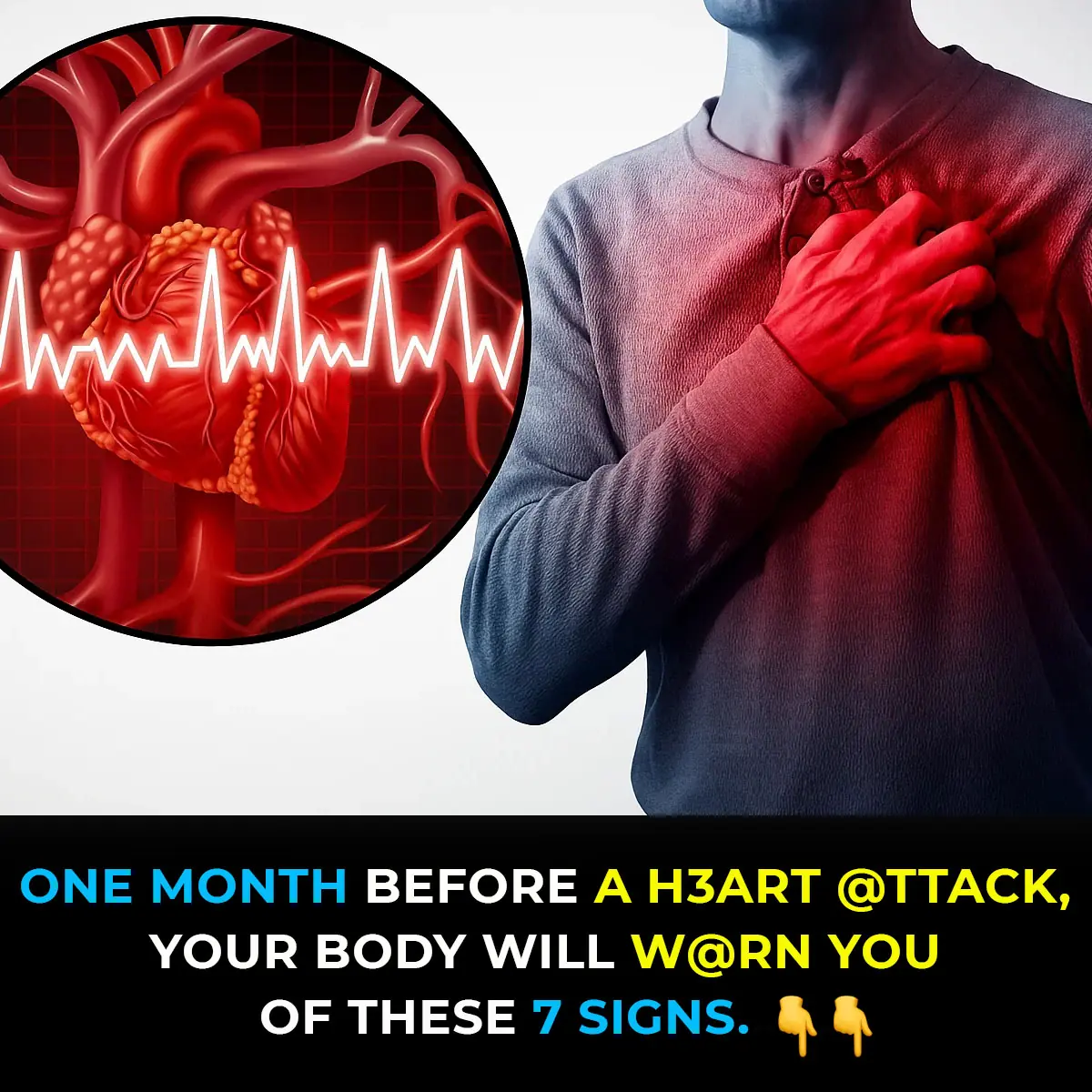
One Month Before A Heart Attack, Your Body Will Warn You Of These 7 Signs
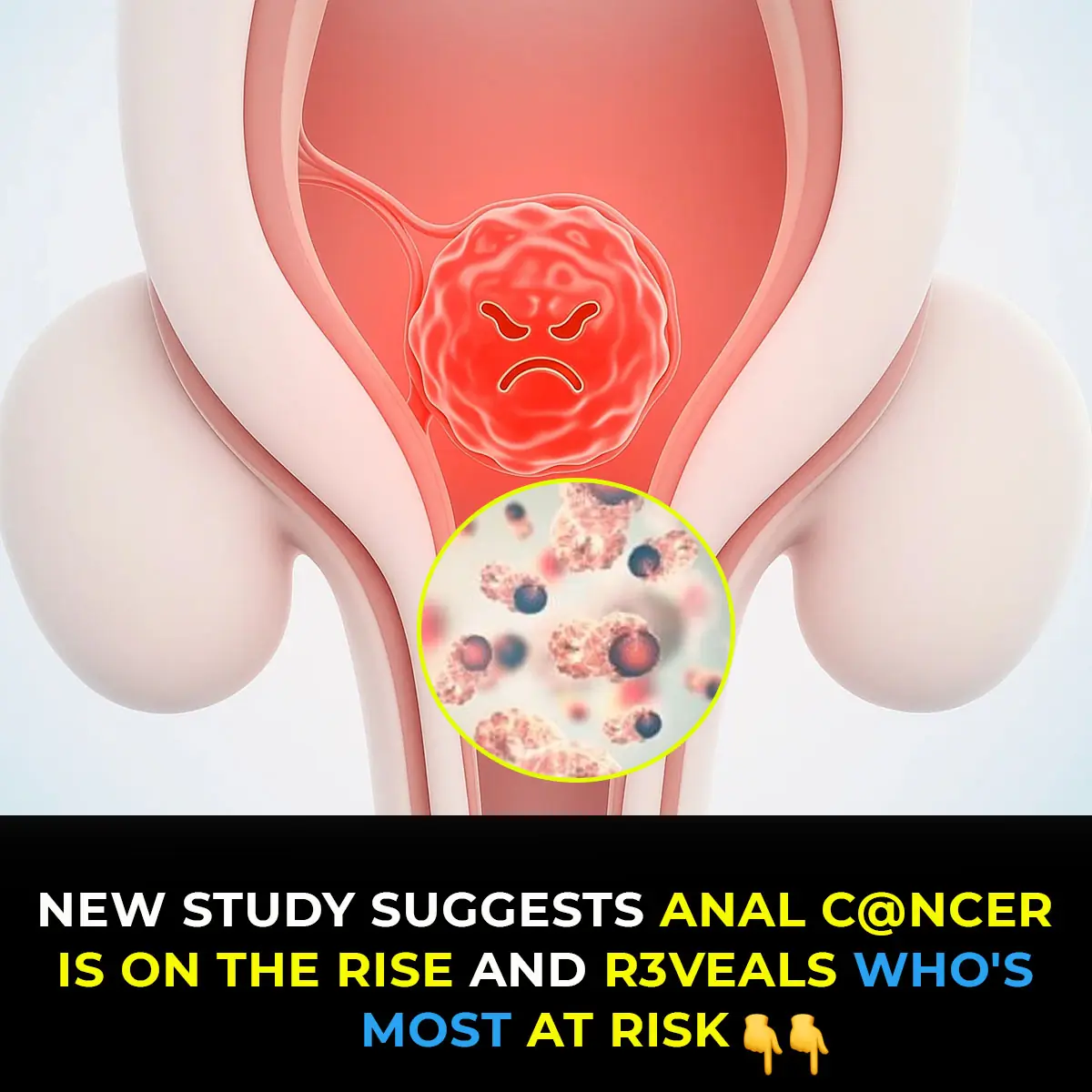
Researchers Sound Alarm Over Surge In Anal Cancer And High-Risk Populations

5 Things Doctors Say You Should Never Give Your Kids to Help Prevent C@ncer

6 Powerful Castor Oil Benefits for Your Health and Wellness
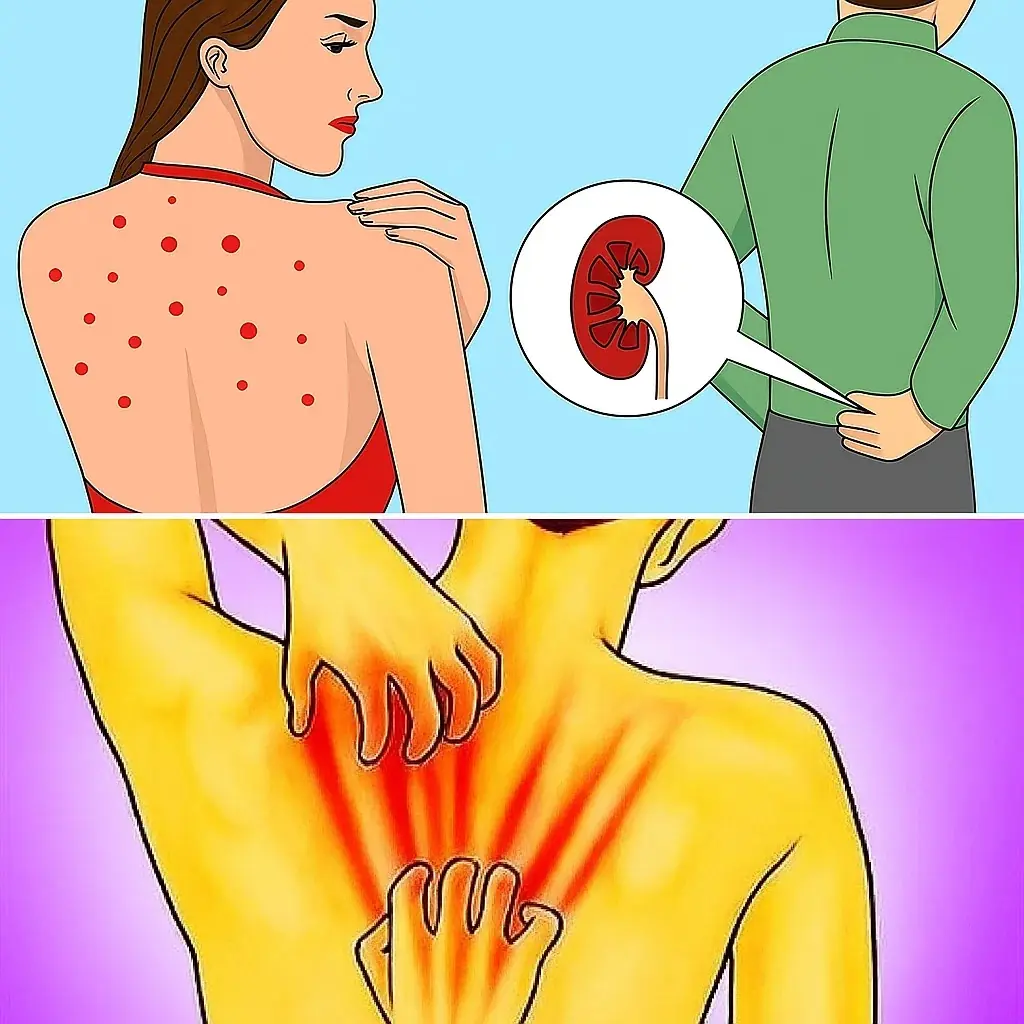
10 Warning Signs Your Kidneys May Be in Serious Danger
Your kidneys quietly work around the clock to keep your body in balance, but when they start to fail, the symptoms can be subtle and easily overlooked. Spotting these early warning signs could save your health—and even your life.

Evidence-Based Health Benefits of Honey (Raw, Pure, Natural) + Turmeric Golden Honey Recipe

Cancer Is Painless At First, But If You See These 8 Signs When Going To The Bathroom, You Should Go For An Early Check-Up
Changes in bowel movements can sometimes be an early red flag for colon cancer, even when other symptoms seem absent. Understanding what’s normal — and what isn’t — could make all the difference in getting timely help.

Home Remedies for Blocked and Stuffy Nose

Woman Reveals the Sh0cking Fantasy Over 50% of Married People Secretly Admit To Having
Over half of married people admit to secretly fantasizing about an ex — a habit experts say can trigger emotional detachment and strain current relationships. While revisiting old memories may feel harmless, psychologists warn it could signal deeper iss

Doctors Warn 3 “Don’ts” After Meals—And 4 “Don’ts” Before Bed To Prevent Stroke At Any Age
Up to 80% of strokes can be prevented, and the key lies in small daily habits — especially right after meals and before bedtime. Science now reveals 3 post-meal and 4 pre-bed “don’ts” that can protect your brain, heart, and long-term health at any

Symptoms of Chikungunya virus revealed as China takes 'COVID measures' after reporting 7,000 cases
China is on high alert after more than 7,000 Chikungunya virus cases were reported across 13 cities in Guangdong, prompting swift containment measures. Unlike COVID-19, this mosquito-borne disease spreads through bites, but its painful symptoms and rapid

Foamy Urine: Here’s Why You Have Bubbles in Your Urine
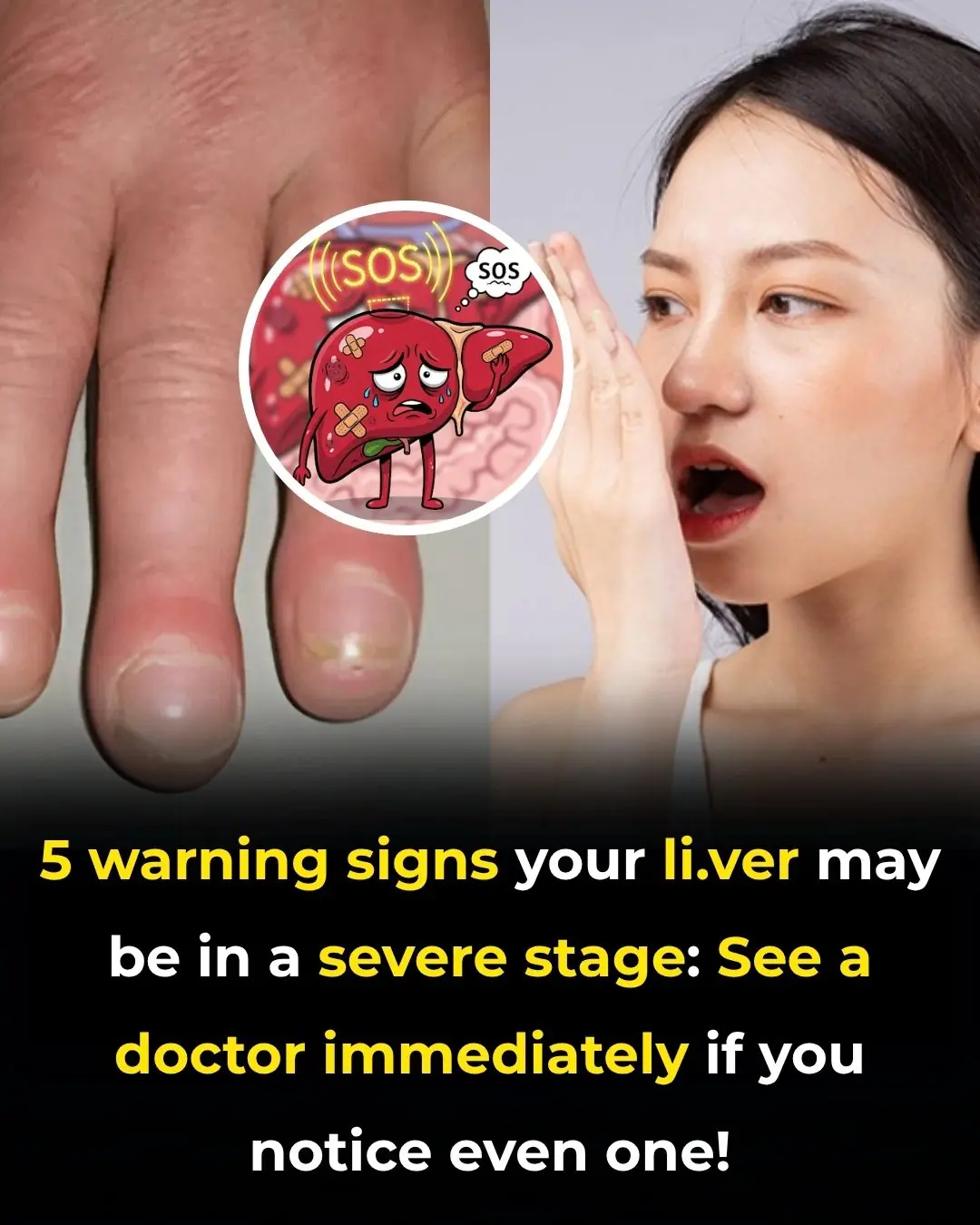
Bruising Easily? Itchy Skin? 5 Hidden Signs of Liver Damage You Might Be Overlooking

Proven Health Benefits of Turmeric and Honey (Golden Honey) – Evidence Based
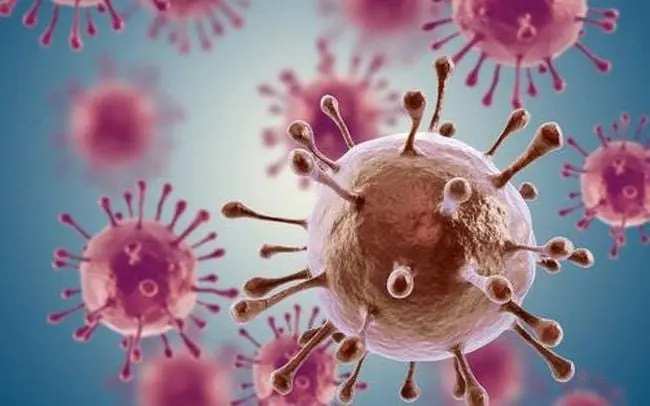
The 20 Most Potent Cancer-Fighting Foods Hiding in Plain Sight

If Your Partner’s Breath Is Brutal, Just Make This One-Ingredient Fix This Morning
News Post

A Late-Night Uber Ride That Changed a Life.

The Only Thing My Late Dad Left Me Was a Rusty Key, and I Thought It Was a Joke Until My Cousin Offered Me $10,000 for It – Story of the Day

You Should Never Ignore These 9 Things Your Fingernails Reveal About Your Health

Scientists Warn Foot-Long “Demonic Flesh-Eating” Worms Are Invading The U.S.—Here’s What To Do

Officials Warn Tourists As Giant Toxic Jellyfish Washes Ashore At Popular Beach

When Nighttime Leg Cramps Become a Concern

One Month Before A Heart Attack, Your Body Will Warn You Of These 7 Signs

Coca‑Cola Fires Back After Trump Claims He Switched The Coke Recipe

Researchers Sound Alarm Over Surge In Anal Cancer And High-Risk Populations

5 Things Doctors Say You Should Never Give Your Kids to Help Prevent C@ncer

6 Powerful Castor Oil Benefits for Your Health and Wellness

A Wild Kingfisher, Three Generations, and the Unspoken Language of Love.

More Than a Win: The True Victory of the Cooma North Boys.

Moment two AI agents realise they're talking to another AI and switch to their own bizarre language

Woman earns hundreds every day just by sitting in New Yorker's cars

My Husband Threw Away the Chicken I Cooked Saying 'You'll Thank Me Later' – When I Found Out Why, I Filed for Divorce

The Ride That Changed Everything.

My Sister Brought My Ex to My Wedding and I Was Stunned, but Then Her Speech Changed Everything – Story of the Day

10 Warning Signs Your Kidneys May Be in Serious Danger
Your kidneys quietly work around the clock to keep your body in balance, but when they start to fail, the symptoms can be subtle and easily overlooked. Spotting these early warning signs could save your health—and even your life.
